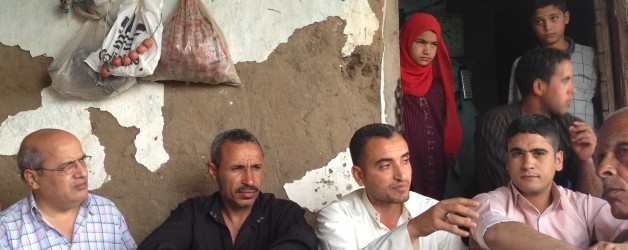This post is also available in: Arabic
The World Bank Group (WBG) has begun its consultations with key stakeholders to help develop the Country Partnership Framework (CPF) for its engagement in the country from 2015 until 2019. The CPF will follow an Interim Strategy Note (shorter term strategy) that guided the Bank’s operations in Egypt from 2012-2014.
The Bank began consulting with the government of Egypt in March 2014 and launched its consultations with other stakeholders including civil society and the private sector in June 2014.
Phase 1 of the consultations (June 2014), focused on identifying the main challenges to development. The online survey for this phase was launched on June 1, 2014, and face-to-face consultations took place in Cairo (June 15), Alexandria (June 19), and Aswan (June 23).
A Phase 2 consultation workshop was held in November 2014 with World Bank Group staff, representatives of other IFIs, key donors, selected UN agencies, and foundations. Discussions during this workshop were based on a summary of the draft CPF.
Phase 3 consultations are being held in February 2015 with civil society in Cairo (February 23), Alexandria, and Aswan (dates to be confirmed). Consultations at this phase aim to collect stakeholders’ input on the draft CPF document.
Egypt’s CPF is currently scheduled to be finalized in the second quarter of 2015 and discussed at the Bank’s Board of Directors in June 2015.
View the Bank’s proposed CPF timeline
CSOs in Egypt have been engaging the Bank for several years now and are particularly engaged at this moment in time viewing the CPF as a key opportunity to share with the Bank their views on how the Bank can support Egypt’s development agenda and what risks the Bank ought to consider when developing its programming for the country.
To that end, CSOs’ advocacy with the Bank has been on two different levels: in pushing for a strong consultation process, and on the other hand, on pushing for certain issues to be addressed in the CPF.
On the consultation process:
Egyptians have worked locally and regionally to push for a strong, open, and meaningful consultation process. The Bank has responded positively to many of their asks including to have the consultations in multiple regions of the country, among other asks.
Read CSO recommendations on the consultation process below:
Egyptian civil society recommendations on CPF consultation process, Various CSOs, May 2014
Regional CPF Consultation asks, Various Egyptian, Yemeni and Tunisian CSOs
CSOs have also released comments on the process thus far and are urging the Bank to continue to adapt and improve the process to take stakeholders’ views into account more effectively. This statement can be found below:
The World Bank must adopt the concept of “integrated development” instead of the logic of “priorities”, Egyptian Initiative for Personal Rights website, July 3, 2014.
2. Attend the next consultation and share your views with the Bank
3. Fill out the Bank’s online CPF survey
2. Visit the Bank’s Egypt webpage to learn more about the Bank’s program in Egypt
3. Contact our BIC team by clicking on the “Contacts” tab to find out more about how civil society in Egypt is engaged and how to connect with them
World Bank Documents
World Bank Interim Strategy Note for Egypt, 2012-2013 (extended to be valid until new CPF is approved)
Draft Egypt CPF 2015-2019, January 2015 (this document was released in February 2015 as a draft for consultation and its contents should be treated as such)
Draft Egypt CPF 2015-2019 Overview, February 2015
Egypt CPF Process Overview, 2014
Draft Egypt CAS Report, June 2014
BIC and other CSO analysis
Revisiting the Growth-Poverty Nexus in Egypt with reference to the World Bank’s Country Partnership Strategies, Reem Abdel Haliem, Egyptian Initiative for Personal Rights, 2014
Impact of World Bank Policy and Programs on the Built Environment in Egypt, Bank Information Center, March 2013
Relevant webpages
Katelyn Gallagher, Senior Program Associate, Middle East and North Africa Program
+1.202.624.0639
kgallagher@bicusa.org


